Investing During a Crisis: That’s Why it Makes Sense!
Financial crises like a Euro crash are the nightmare of every investor. However, they are particularly annoying for those who got in just before a stock market crash. For all other investors they are a great opportunity. A look at the historical development shows: Those who invested in shares directly after the end of an economic crisis have always made particularly high profits in the past, as an evaluation of the German Share Index shows. In this article, we discuss strategies and opportunities on investing during a crisis and the best alternative investments during financial crisis. If you are looking for the best online brokers in Germany, check out this article!
When is the Right Time to Invest During a Recession?
Never catch a fallen knife, says an old stock market adage. If you invest too early, you will be hit by the crisis. This was the experience of investors who bought shares after the outbreak of the Corona crisis on 9 March 2020. The German share index (DAX) fell by 7.94 percent. But those who bought on the following day missed the opportunity to get in at an even lower price. On 12 March 2020, the index fell by 12.24 per cent. In percentage terms, this was the second-highest daily loss in the history of the DAX, only surpassed by the 12.81 per cent on 16 October 1989.
DAX Monthly Chart Since Inception
The DAX was launched in 1988. The starting value is fixed at 1,000 points on 31 December 1987. Since then, there have been ups and downs – but in the long term the trend has been clearly upwards.
Thus, a crisis can drag on even for several years, as it did after the dotcom bubble burst in 2000. The EuroStoxx lost about 1.7 percent in 2000, 19.1 percent the following year and as much as 36.1 percent in 2002. So bear that in mind, when investing during a crisis.
Important Tips for Investing During a Crisis:
Bottom Out and Use Technical Signals
As long as the DAX is in the red every trading day, it is often not a good idea to enter the market. While investing during a crisis, it is better to wait until the index is up two or three days in a row. This is especially good if the slump has lasted for several days. Then it is unlikely that the complete minus will occur on a balanced day, and the buyer misses the buying opportunity.
DAX Prices
However, even in long downturns there are counter movements that can last for several days. In addition, investors should therefore pay attention to psychologically important marks. This can be, for example, a round number such as the 9,000-point mark. If it is not broken during a downward movement, this can initiate a trend reversal – but it does not have to. Sometimes it also happens that a downward movement fails at such a resistance line at first or even several times before it breaks through the barrier after all. That is why further rules, while investing during a crisis, make sense.

Enter in Stages
It is advisable not to invest the entire capital at once during a crisis and in general. For example, if you want to invest 5,000 euros, you can buy in five tranches of 1,000 euros each. For example, you can set up a savings plan and then cancel it after five months. However, it makes more sense to check the market situation at fixed intervals and then buy. In the case of short and severe crises, where the trend reverses after a short crash, a shorter rhythm than one month is recommended. With this fixed interval investing, you benefit also from the cost-average-effect.
Savings Plan
Savings plans are a wonderful invention for saving money regularly. However, if you want to take advantage of it, while you are investing during a crisis, it is better to get in the market yourself, even if you do so in several stages.
If the markets switch to an upward mode earlier than planned or if the triggering crisis has ended, buyers should invest the remaining amount immediately. With this approach, the capital can also be invested in various stocks or ETFs. You can do that by checking our overview of the best online brokers, the best saving accounts and money transfer providers in Germany!
Observe Fundamental Data
Profit forecasts are difficult when buyers are investing during a crisis. Even an attractive price-earnings ratio (P/E) is therefore no guarantee of rising prices. Nevertheless, it is worth taking a look at these data. Especially if initial estimates of future profits are added as an aid.
Weighing Up Opportunities and Risks
It is worthwhile to carefully weigh up the advantages and disadvantages of an investment and to compare the opportunities and risks. Such a procedure is often called a SWOT analysis.
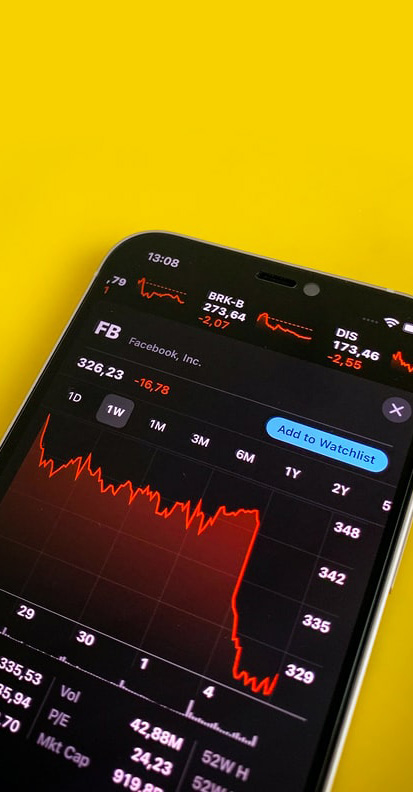
What you need to bear in mind when investing in times of crisis
Broad diversification
As a rule, investors should always diversify their investments. But this is especially true while investing during a crisis, because if a slump drags on for a long time, it can mean bankruptcy, especially for weaker companies.
Ideally, investors should not only buy different shares, but also shares from different sectors and regions. This is because they are affected differently by the crisis. Chinese shares, for example, have recently suffered particularly. This entails risks and opportunities in equal measure. That is why it is good to invest a part, but not all, there.
Buy shares with substance
Shares with substance are boring. They often offer a high dividend yield, but not the same growth opportunities as stocks in future-oriented sectors. Examples of safe stocks are food companies or shares of utilities and their suppliers, such as water stocks.
At least at the beginning of a crisis it can make sense to buy such defensive stocks. This is because they are less affected by a crisis. However, share prices here have also usually fallen less sharply and the opportunities are smaller. Risk-tolerant investors should therefore also consider those shares that were particularly affected. For this, however, investors need some experience.
Low-volatility ETFs as an alternative
Those who are unsure about their stock selection can specifically buy a low-volatility fund, i.e. a fund with low volatility. It contains stocks that do not fluctuate strongly, even for if you are investing during a crisis.
Alternative Investments and Tips During a Crisis
Add gold and real estate
If you expect a longer crisis, you can also add some gold and real estate to your portfolio. Both forms of investment are relatively stable in value and often even rise in value during the crisis. Although the price of gold also fell at the beginning of the Corona crisis, this was probably a temporary effect because investors wanted to compensate for losses. Instead of physical gold, a gold ETF is a good option.
Real estate can also be a good alternative. Better than buying a condominium or a house, however, is investing in shares of real estate companies. Special real estate ETFs allow you to invest in several real estate companies at the same time. This is advantageous if, for example, one suffers from nationalisation or a negative economic development in the core area. Moreover, it is easier to turn a share into money again later. Especially since there may be more lucrative investment opportunities than real estate once the crisis is over.
Examine online wealth management as an alternative
Those who do not trust themselves with the targeted selection of shares and ETFs can leave this work to an online wealth management service. Robo-advisors like Scalable essentially take over this selection (usually with the support of experts) and the costs are now very low.
Automated asset management involves buying ETFs from different regions and sectors, and bonds if the client wishes. Some also invest in gold.
The minimum deposit is often only 5,000 euros. Alternatively, investors who are investing during a crisis can also have their assets managed via an ETF or a fund.
Bring patience
The most important thing, however, is to take enough time to wait for a recovery. A crisis, like the economic crisis after the turn of the millennium, can sometimes last several years. But if you can wait several years, you will almost always be in the black.
Those who have already bought shares should, as a rule, remain invested during a crisis. Only if an investor needs the money in the near future, for example to buy a house, can it make sense to pull the ripcord before the losses become too great.
Be careful in your recession investment strategy:
Start-ups often cannot survive a prolonged crisis
Young companies often suffer the most during a crisis. They often make losses and depend on regular capital inflows. If investors panic and withdraw their money, they can quickly find themselves in difficulties that threaten their existence. Moreover, these companies often offer products whose purchase is postponed first in the event of a crisis.
At the same time, however, this is where the greatest opportunities exist. The share prices of start-ups often fall particularly sharply in a crisis and can therefore also be bought particularly cheaply. In some sectors, a crisis can even be beneficial. In such situations, governments often spend money specifically to stimulate the markets. Companies in the infrastructure sector or in future-oriented sectors, such as hydrogen or lithium stocks, can benefit from this.
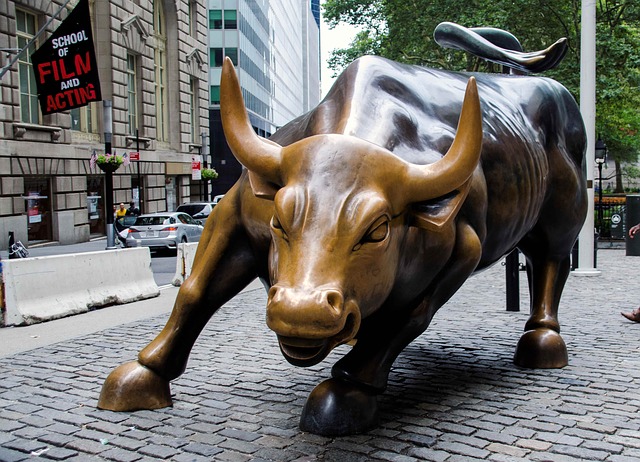
Interest rate products are often only attractive to a limited extent
At first glance, fixed-interest investments seem particularly safe, but this only applies to bank deposits, which already hardly yield any interest. Corporate bonds, on the other hand, suffer from an increased risk of insolvency. Investors can profit, however, if they already buy government or corporate bonds before an interest rate cut. These will go up if the interest rate actually goes down. On the other hand, those who buy after an interest rate cut (and provided no further one follows) will receive lower interest rates and still have to live with the increased insolvency risk.
Better interest rates are often loans granted via lending platforms. As with bonds, there is sometimes a chance of price gains if the platform offers a secondary market where existing loans can be resold. However, the security here is also lower than with classic banks.
Short selling and speculation on falling prices only for professionals
The possibility of profiting from falling prices while investing in a crisis seems attractive. However, this is only recommended for experienced investors – and even they should only invest money whose loss they can easily cope with.
Investors can bet on falling prices either through short selling, warrants or certificates, for example on the short DAX.
More Practical Tips for Investing during a Crisis
Setting Stop Losses and Limiting Losses
Stop loss orders are a very simple way of limiting losses. Investors inform their broker of a price level below the current prices. If this price level is reached, the broker automatically triggers a sell order.
A case study: A share is quoted at 100 euros. An investor places a stop loss order at 90 euros. If the share price falls once to 90 euros or below, the sell order is triggered. This applies regardless of whether the share rises again later or falls even further.
The main advantage of stop loss orders is that investors limit their losses automatically and without having to constantly monitor the share price. Incidentally, if you lose 10 percent of your stake, you need a profit of 11.1 percent to return to the starting level. If, on the other hand, you lose 50 per cent, you will need a profit of 100 per cent later on.
Important: Stop loss orders are unlimited sell orders. Once triggered, they are sold at the next best price. Under extreme market conditions while you are investing during a crisis and in the case of illiquid stocks, this can deviate significantly from the stop level. It is possible that a stop loss order would have been of limited help in the Corona crash.
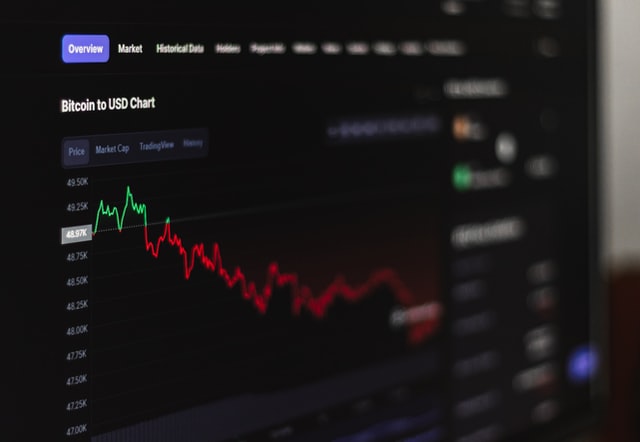
Trailing Stops Dynamically Hedge Gains
Trailing stop loss orders supplement a simple stop loss with an adjustment mechanism. The stop threshold is “trailed” by rising prices.
Here is a case study: An investor buys a share for 100 euros. He places a trailing stop loss order at 90 euros. In addition, it is determined that the stop level is raised by 10 euros for every 10 euros of full price gain.
This means the following: If the share price rises to 110 euros, the stop level automatically rises to 100 euros. If the share price reaches 120 euros, the level is increased accordingly to 110 euros, and so on.
Note: If the share price falls, no adjustment is made. Trailing stop loss orders thus protect profits from stronger setbacks and also from a stock market crash as happened in the Corona crisis.
Hedge Against Stock Market Crashes with CFDs and Knock-Out Certificates
If the crash has already begun, options are expensive. In this case, derivatives can be used to hedge against price losses, where volatility does not lead to large price jumps. These include knock-out certificates.
With a knock-out certificate, investors bet on falling prices in the underlying instrument. These products can be used to hedge a portfolio against price losses – but with limitations.
Here is a slightly simplified case study. An investor buys a knock-out certificate on the DAX with a KO threshold at 12,400 points. The DAX is quoted at 12,300 points. The intrinsic value of a knock-out certificate is calculated by subtracting the current DAX price from the KO threshold – in this case 100 points. With a subscription ratio of 1:1, this corresponds to a theoretical price of EUR 100. In practice, it is more likely to be 120 EUR due to premiums.
If there is a stock market crash and the DAX falls to 11,500 euros, the certificate gains 800 euros in value. However, if the DAX rises once to the level of the KO threshold, the certificate expires worthless.
The KO mechanism is the biggest weakness of knock-out certificates in hedging the portfolio. The DAX could rise briefly to 12,400 points, knock out the certificate and then start a stock market crash. The insurance would then be ineffective. For knock-out certificates with KO barriers that are further away, investors have to put in more money.
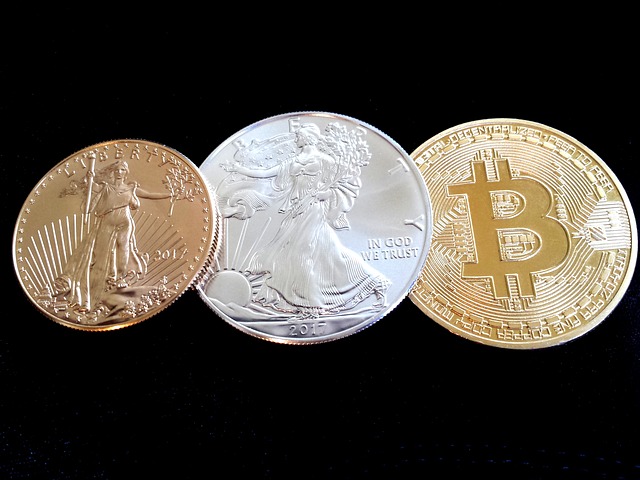
Bitcoin – the perfect protection against inflation?
History proves that printing new money is not always sensible. A look at Venezuela or Argentina also illustrates the effects hyperinflation can have. Basically, a currency is only worth as much as the confidence of the market participants who use it. Even the gold standard, which was supposed to secure the US dollar with a real value at the time, has long been history. Thus, the leading currency is also dependent on the confidence of the market.
In the course of the past financial crisis from 2008, Satoshi Nakamoto developed Bitcoin. The entire blockchain can hold a maximum of 21 million coins and thus has no inflationary characteristics. For many, the currency is considered digital gold. For many, the developments in the financial crisis may be confirmation that this assumption is not true. However, if we take a look at gold, it is noticeable that high losses in value also took place here – investors simply withdrew capital.
However, gold also initially recorded losses in the 2008 financial crisis before investors discovered the precious metal as a safe haven.
Fundamentally, BTC is on the verge of a new breakout – the Bitcoin halving in May 2024 positively influences the stock-to-flow model. The shortage should create a shortage given the same demand. So are there opportunities here for long-term investors? Be prepared with one of the best crypto brokers in Germany!
Investing successfully with crypto during the Corona crisis
The question of whether current prices are a buying opportunity for long-term investors is difficult to answer. However, a look at the development of Bitcoin or altcoins such as Ether, XRP or IOTA makes it clear that there is certainly price potential. Especially, if you are investing during a crisis.
Nevertheless, even during the Corona crisis, investors need to be sure whether it is a buying opportunity. We therefore recommend a long-term analysis of the selected asset. In addition, the individual strategy plays a major role in investing. We therefore recommend adhering to the following factors when trading:
- Find and follow your own strategy
- Define your own investment horizon
- Finding the right investment vehicles
- Make rational decisions based on the strategy
- Investing and regularly reviewing the investment framework
Finding the right strategy
In theory, many investors plan long-term investments, but the reality is often different. Investment decisions are based on gut feelings and fundamental valuations or fixed strategies are scarce commodities. For this reason, investors should make the effort to define a suitable strategy at the very beginning of their own investment career. The following questions can help to find the right strategy:
- Do I pursue long-term investments via buy and hold?
- Should I only invest in favourable opportunities according to the value approach?
- Do I want to take advantage of short-term trading opportunities?
- Should I regularly bet on falling prices and place calls on better buying prices?
These questions alone make it clear that investors have many options for choosing the appropriate strategy. However, it is important not to change strategies every week.
Interest in buying bitcoin surges during crisis
There is panic and uncertainty, both among citizens and in financial markets. Pretty much all stocks were crashing during the coronavirus crisis. But despite the fact that many are panicking and selling a lot to be liquid, the demand to buy Bitcoin is increasing enormously. Is deflation or inflation coming, which will fuel the rise in Bitcoin prices? So where do we go from here?
Google Trends shows 3x higher demand than a year ago
The trend clearly shows that people are highly interested in buying Bitcoin. The exciting thing is that just a few years ago in 2019, the Bitcoin price was just a few thousand dollars. However, the demand was only 1/3 of the current demand, even though Bitcoin is currently at around 40,000$. So it doesn’t seem to be just that investors are looking for a cheap way to get in, rather the current crisis seems to be having an effect on demand.
The COVID-19 coronavirus is causing people to panic. This leads to many fearing for their liquidity and thus partially or even completely liquidating their financial investments. The economy in many countries is only running on the back burner, as curfews are imposed in many places, or certain institutions are not allowed to open. The consequences: Many companies or entrepreneurs will become unemployed, if they are not already.
Customers will stay away, but the running costs will continue to a large extent. The state wants to support the economy in all big economies like Germany, the USA or China. In essence, the states are implementing this plan in the same way: Printing lots of new money and make it available to the economy in the form of almost interest-free loans.
How long will confidence in fiat money last?
Although it has been known at least since the last financial crisis more than 10 years ago that flooding the markets with money is not a solution to the actual problem but a symptom treatment, the approach is now being continued. The cheap money already managed to create bubbles in stock markets, which are now gradually being beaten down to a healthy level by the crisis.
When actors can create as much money as they want out of nothing, this is dangerous. Especially because the money is backed by nothing but our trust. At least people know that money is not backed by anything. Money used to be backed by gold or oil, but that is no longer the case. People just trust that a €50 note will still be worth €50 tomorrow.
But what if in a crisis the panic goes so far that no one wants to have money that is available in excess? Then people will look for alternatives for investing during a crisis. Bitcoin can be such an alternative. Unlike gold, it can be easily shared, stored and transported. Moreover, no central authority decides about Bitcoin, because Bitcoin is decentralised.
You can say that Bitcoin is the “better” money. But will people realise this? That is exactly what seems to be happening. Searches for the keyword “buy bitcoin” are higher than ever.
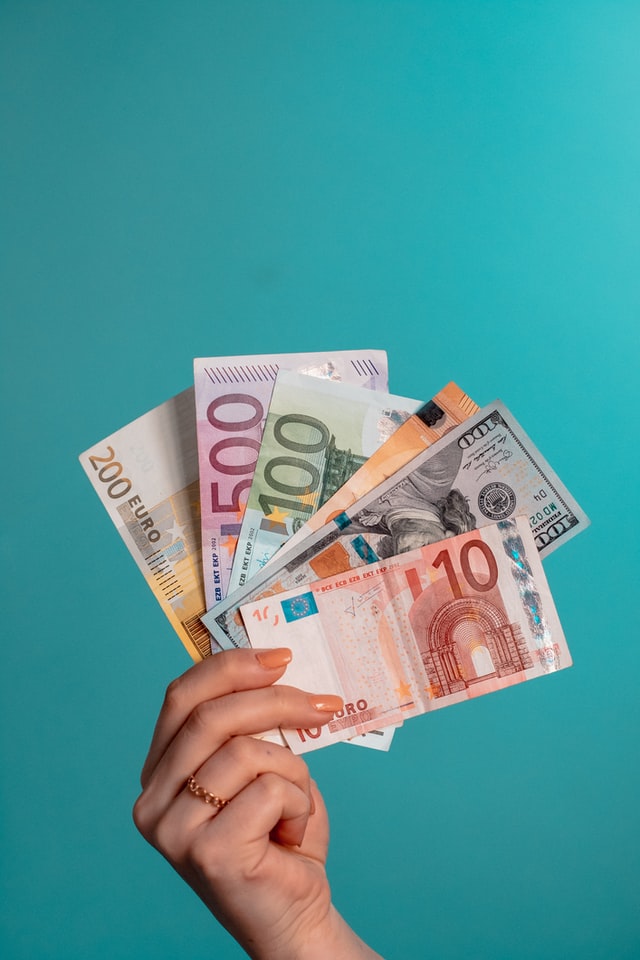
First deflation, then hyperinflation?
It becomes problematic if deflation occurs first, which then degenerates into hyperinflation. If the economic downward trend is reinforced by deflation, the economy will end up in a spiral. Due to the current state of emergency, which leads to or has already led to more unemployed people, people’s demand for goods decreases. Moreover, in such a crisis, people who are investing during a crisis usually wait to see if prices will fall further. Because companies are also unable to assess the situation, they are also reluctant to invest and take on new jobs.
This in turn is also bad for the economy. Less and less income is generated, which in turn leads to the fact that the repayment of loans puts so much pressure on companies that businesses go bankrupt. Demand falls further because there are even more unemployed. This in turn leads to more redundancies, as companies do not generate any income.
Here comes the crucial point: what happens if the markets continue to be flooded with cheap money? Demand increases but supply does not and there is an extreme amount of money on the consumer side. This inevitably leads to inflation. If monetary policy has completely failed, there will even be hyperinflation. The money is no longer worth anything.
In order for the currency to remain stable, price stability is crucial. If the value of money were to fall, there would be a payment problem. People lose their confidence in money and prefer to invest the money in real assets. As a result, inflation keeps increasing.
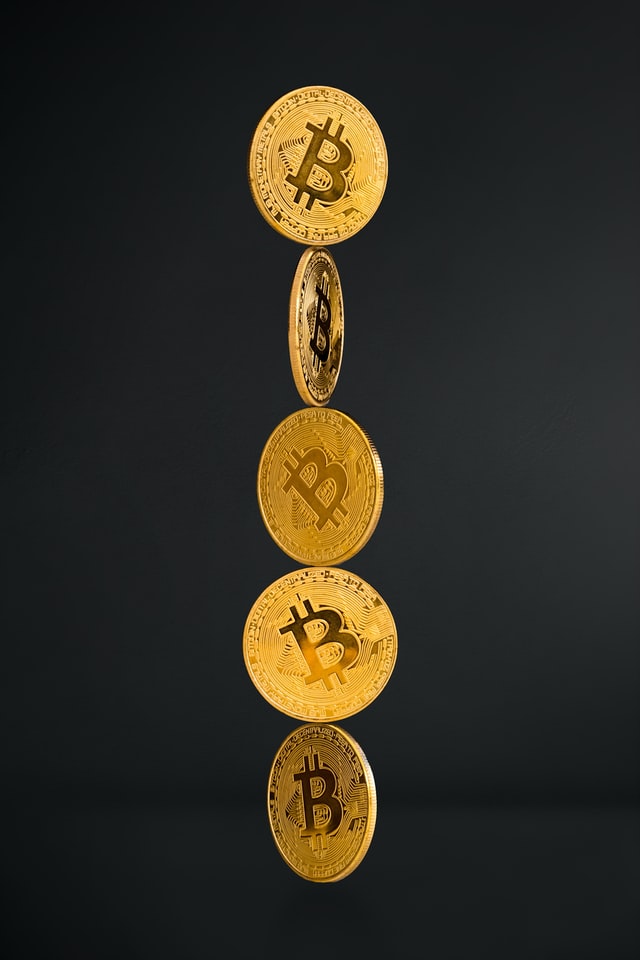
Whether deflation or inflation, it makes sense to hedge with Bitcoin
Bitcoin could be the right tool to protect yourself from demonetization in a crisis. So it makes perfect sense to own at least some Bitcoin.
Although we have already shown that Bitcoin correlates strongly with classic markets such as the stock market, Bitcoin has so far held quite stable. Will a possible sell-off in equities cause Bitcoin to fall further, or is it more likely that people will shift into Bitcoin? For some, Bitcoin already seems to be a safe haven. But be careful, Bitcoin is not the safe haven at the moment. Currently, it is still fiat money.
Money is being withdrawn like crazy. People are now trying to hoard cash. As the Frankfurter Allgemeine Zeitung (FAZ) reported, there are already the first restrictions on withdrawals. Some financial institutions limit cash withdrawals to a certain amount, such as €1000. So will money now be scarce for the time being, as thought? Are we in for a possible deflation followed by hyperinflation? Bitcoin can profit from this!
Let’s take a look at the Bitcoin situation objectively and ignore the crisis for now. According to the cycle, we are in a re-accumulation phase. We are on the verge of halving. Historically, halving has been followed by a significant price increase.
Conclusion
None of us can see into the future. It is up to everyone to make the right decision for themselves. It would certainly not be advisable to invest all your savings in Bitcoin at the moment. However, one should get warmer with Bitcoin and at least consider a possible investment, maybe over one of our compared Crypto Brokers and Online Brokers. Additionally, you should consider gold, silver and real estate if you are investing during a crisis and the practical investment strategies mentioned in this article. You consider to get a personal loan? Then check out this comparison!
Disclaimer: This is no investment advice and just a general information about different investment options in Germany. We’re not professional investment advisors. If you need assistance please get in touch with an official advisor. This post contains affiliate links, meaning we earn a commission if you use those links.

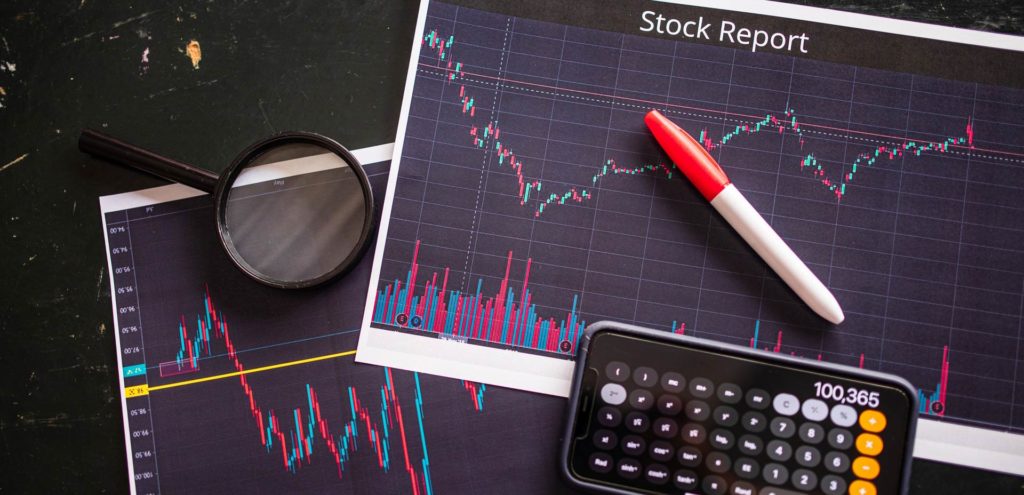
1 Comment. Leave new
[…] you are looking for a guide for insurances in Germany or a guide on “How to invest during the crisis”, check out the linked […]